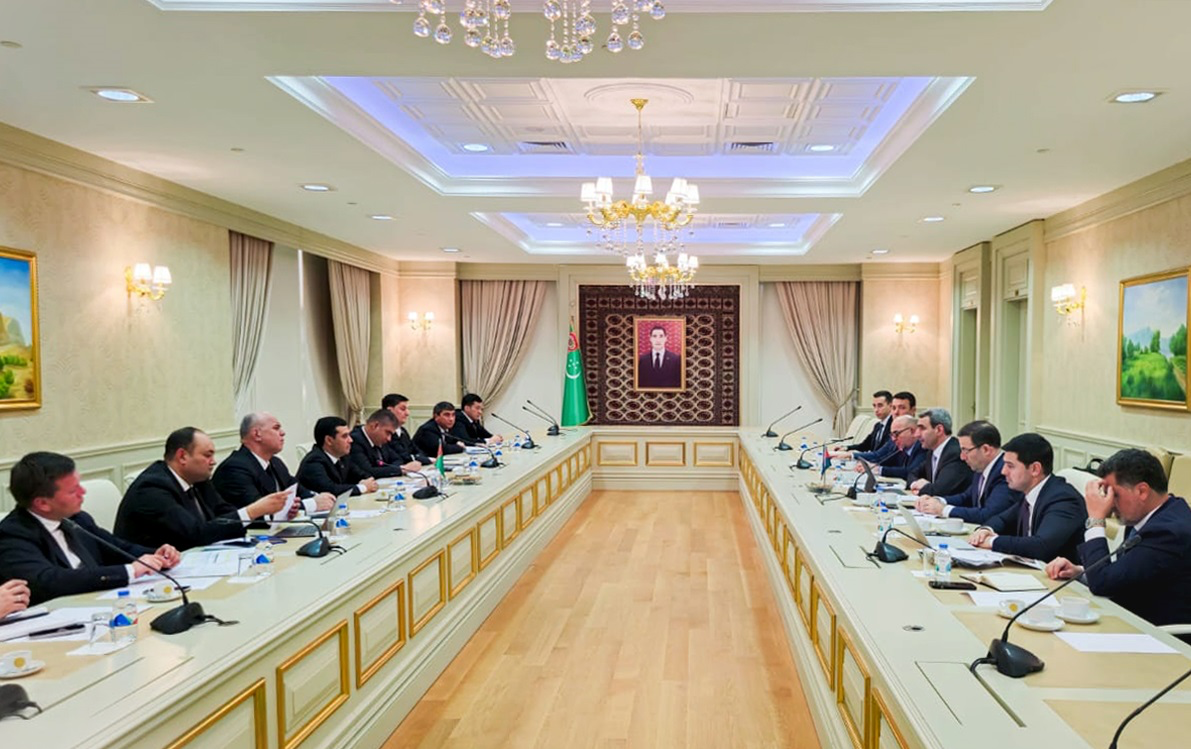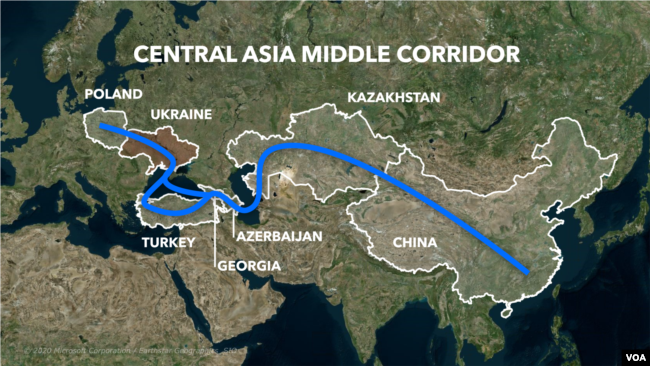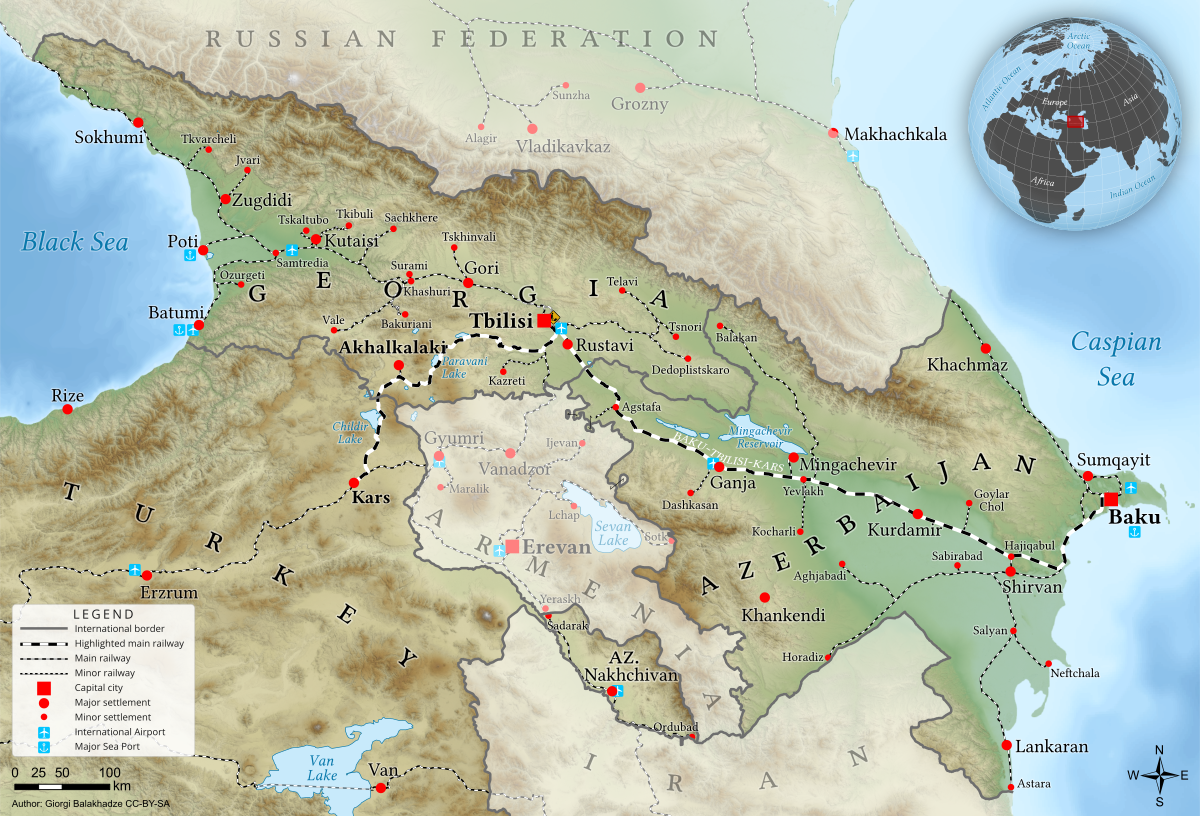Azerbaijan and Turkmenistan are intensifying their collaborative efforts to boost rail freight transport across Eurasia, focusing on the Trans-Caspian International Transport Route (TITR), also known as the Middle Corridor.

During a recent visit to Turkmenistan, Rovshan Rustamov, Chairman of Azerbaijan Railways (ADY), engaged in detailed discussions with Azat Atamuradov, Head of Turkmenistan's Railway Agency, and senior representatives from the Turkmenistan Maritime Agency.
Recent talks aimed to strengthen railway relations between the two countries and increase freight traffic, especially via multimodal transport along the Central Asia-Europe and China-Europe routes. They recognized the potential for collaboration and the need to promote these opportunities in the European market.
Additionally, during his visit, Rustamov met with executives from Turkmenistan's top oil and gas companies, detailing Azerbaijan's initiatives to expand the capabilities of the Middle Corridor.
TITR or the Middle Corridor, initiated in 2013, is seen as the main pivot for realizing the high transit potential of the Central Asian and South Caucasus nations. Azerbaijan, Bulgaria, China, Georgia, Kazakhstan, Poland, Romania, and Türkiye are the TITR International Association member states.

Compared to the Northern Corridor, the Middle Corridor, consisting of about 4,250 km of rail lines and about 500 km of seaway, provides a more cost-effective and faster trade route, cutting travel distance by 2,000 kilometers.
Additionally, the Middle Corridor passes through more favorable climate conditions and reduces travel time by 15 days compared to sea routes. The Middle Corridor also presents immense opportunities for cargo traffic in Asia, enabling goods to reach the Middle East, North Africa, and the Mediterranean region by integrating port connections in Türkiye.
The Middle Corridor's strategic position is anticipated to generate substantial economic opportunities, allowing South Caucasian and Central Asian nations to capitalize on the $600bn China-Europe trade annually. The enhancement and expansion of Trans-Caspian cooperation will be supported by the creation of logistics centers and free trade zones at the ports of Azerbaijan, Kazakhstan, and Turkmenistan, thereby boosting regional economies. By effectively leveraging the advantages of the Middle Corridor, countries in the region can achieve increased trade and economic growth.
Azerbaijan has been progressively investing in the development of the Middle Corridor by upgrading its multimodal transport network, including railways. In May, Azerbaijan Railways (ADY) announced the completion of the expansion project for the Baku-Tbilisi-Kars railway. The 184-kilometer Georgian section of this line has been modernized, increasing its annual throughput capacity from 1mn tons to 5mn tons.

After the resumption of freight operations, the first train on the upgraded BTK left Azerbaijan for Türkiye, completing the journey on May 25. Since its launch in 2017, BTK transported nearly 1.5mn tons of freight, according to the railway administration of Türkiye.
Turkmenistan has been consistently seeking effective pathways for exporting its primary commodities, including oil and natural gas. Consequently, it has been a proactive advocate for the Middle Corridor from an early stage. In 2023, Turkmen officials explored the idea of a transnational highway stretching to China.
Demonstrating its commitment to the Middle Corridor, Ashgabat invested $1.5bn during the 2010s to enhance its principal intermodal transshipment hub at Turkmenbashi port. With expectations of increased trade via the Caspian Sea, the expansion aimed for Turkmenbashi’s facilities to manage up to 17mn tons of cargo annually, including 400,000 shipping containers.
In April, the Chairman of Turkmendenizderyayollary (Turkmen Sea and River Routes), Batyr Annaev, said the integration of the Turkmenbashi port into the Middle Corridor would contribute to the growth of the economies of Central Asian countries and strengthening their position in the world market.
He highlighted Turkmenistan's uninterrupted measures to boost activity at the Turkmenbashi port. Efforts include implementing incentives such as reductions in port fees and maritime transport discounts. The port maintains regular ferry services with the Baku Sea Trade Port and feeder transportation with dry cargo ships.
“It (Turkmenbashi port) plays an important role in the transit system of Central Asia, being a link in the East-West corridor. With a throughput capacity of 17mn tons per year, the port can process the entire range of goods in demand in the region. Regular cargo transportation is carried out along the route Turkmenbashi - ports of the Caspian states," Annaev stated.
Follow Daryo's official Instagram and Twitter pages to keep current on world news.
Comments (0)